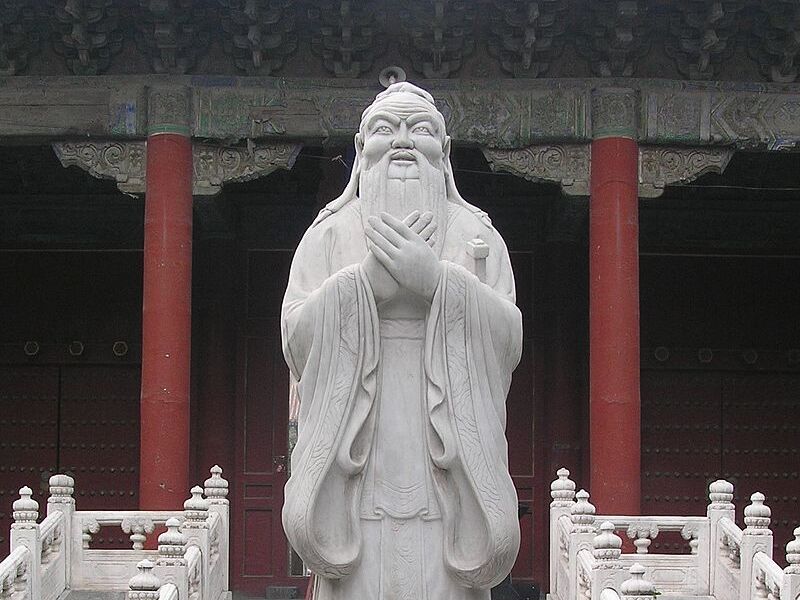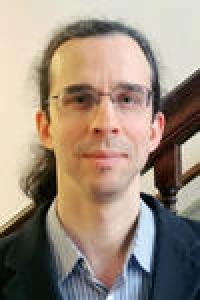HUMS 214, Introduction to Chinese Philosophy

Course Description:
This course represents an introduction to the most important philosophical thinkers and texts in Chinese history, ranging from roughly 500 BC–1500 AD. Topics include ethics, political philosophy, epistemology, and ontology. We discuss the basic works of Confucian and Daoist philosophers during the Warring States and early imperial eras, the continuation of these traditions in early medieval “dark learning,” Buddhist philosophy (in its original Indian context, the early period of its spread to China, and in mature Chinese Buddhist schools such as Chan/Zen), and Neo-Confucian philosophy. The course emphasizes readings in the original texts of the thinkers and traditions in question (all in English translation). No knowledge of Chinese or previous contact with Chinese philosophy required.
Led by:
 |
Professor Eric GreeneEric Greene is Assistant Professor in the department of Religious Studies at Yale University, where he has taught since 2015. He received his B.A. in Mathematics from UC Berkeley in 1998, followed by his M.A. (Asian Studies) and Ph.D. (Buddhist Studies) in 2012. He specializes in the history of medieval Chinese Buddhism, particularly the emergence of Chinese forms of Buddhism from the interaction between Indian Buddhism and indigenous Chinese culture. His recent books Chan Before Chan and The Secrets of Buddhist Meditation study the history of the transmission on Indian meditation practices to China, the development of distinctly Chinese forms of Buddhist meditation, Buddhist rituals of repentance, and the uses of meditative visionary experience as evidence of sanctity. He has also published on the early history of Chan (Zen) Buddhism, Buddhist paintings from the Silk Roads, and the influence of modern psychological terminology on the Western interpretation of Buddhism. His current research focuses on practices of translation and commentary during the first era of Chinese Buddhism, ca. 150-350 AD. |
|
|
Professor Lucas BenderI am a scholar of Chinese literature and thought, specializing in the medieval period (roughly 200 CE through 1100). I am most interested, these days, in the question of what positive conclusions we can draw from the vast amount we don’t know. This theme is at the core of my first book, on the Tang poet Du Fu 杜甫 (712–770), and it is also central to my second book project, on the much-remarked but little-studied “pluralism” of medieval China. I am also interested in the question of how the medieval Chinese tolerance for obscurity eventually gave way in important cultural arenas to a more optimistic account of our capacity for knowledge. In exploring these questions, I focus primarily on the intersection of thought and literature. Literary and poetic forms seem to me (and seemed to important Chinese writers, like Du Fu) particularly well suited to navigating a world we do not always understand. At the same time, however, the obscurities of the world and of ourselves were also important themes in all of the major strands of medieval Chinese thought, from Xuanxue 玄學 (“Obscure Learning”) to Buddhism, Daoism, and even Classicism (or Confucianism). Accordingly, I am interested in the ways ideas from all these traditions are invoked both in literature and in understanding literature. Most recently, I have begun to explore the question of how these traditions thought about each other, how they justified themselves in the sometimes contentious intellectual spaces they shared, and how they related themselves to those obscurities onto which they each claimed a different vantage. In the future, I hope to continue pursuing related issues by exploring how “literature” and “philosophy” came to diverge in premodern China, and what role the tragic character of human life played in differentiating those traditions. At Yale, I am an assistant professor in the Department of East Asian Languages & Literatures and a member of the Executive Committee for the Yale College Humanities Program. In these departments, I teach courses on premodern Chinese culture generally, Chinese literature from the Han dynasty through the Song, Chinese philosophy, and (occasionally) comparative topics. Though the engrossing difficulty of medieval Chinese texts has made me a specialist, I maintain an abiding interest in comparative religion and comparative philosophy, and am always excited to explore possible projects that would expand my horizons in those areas. |
